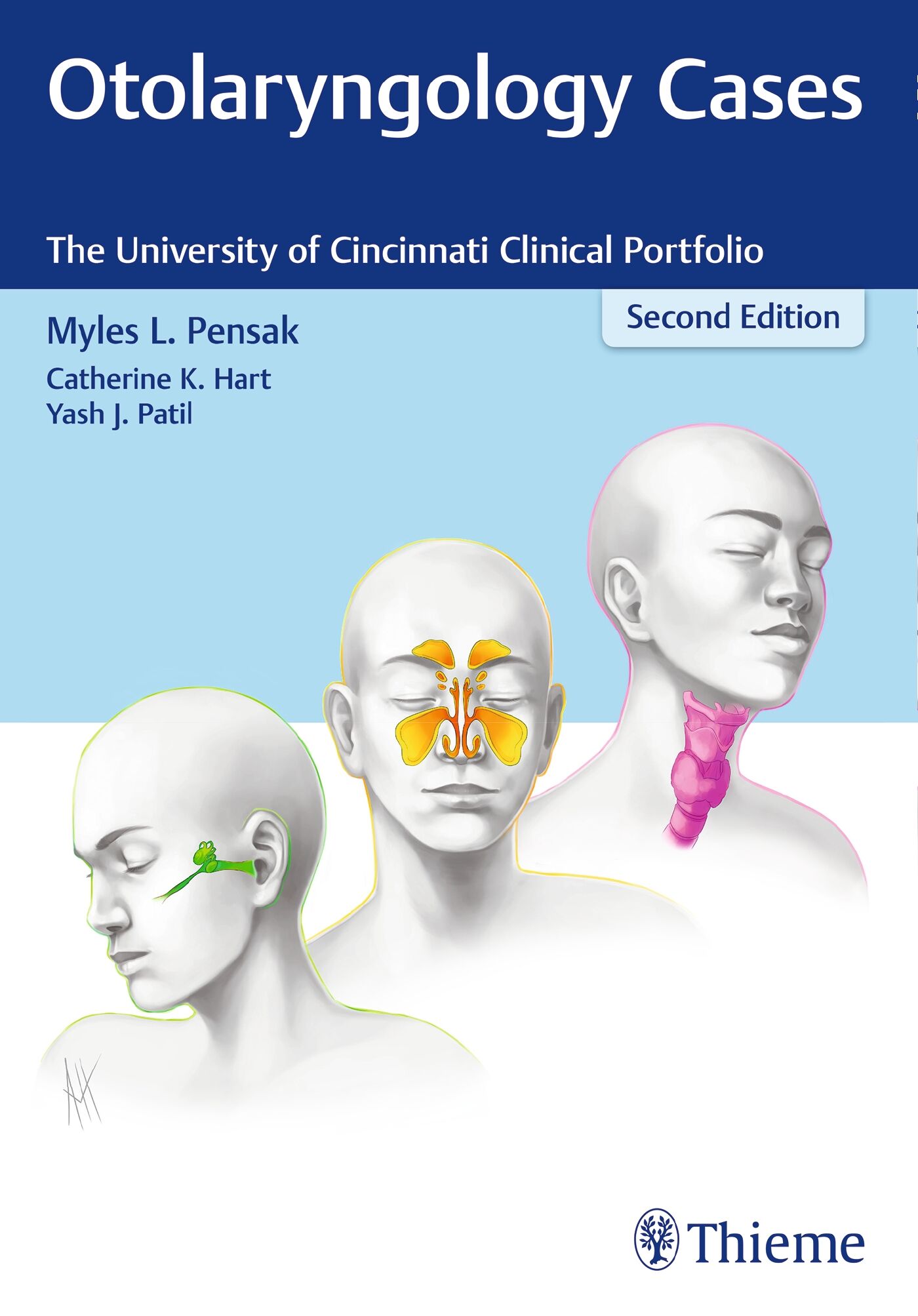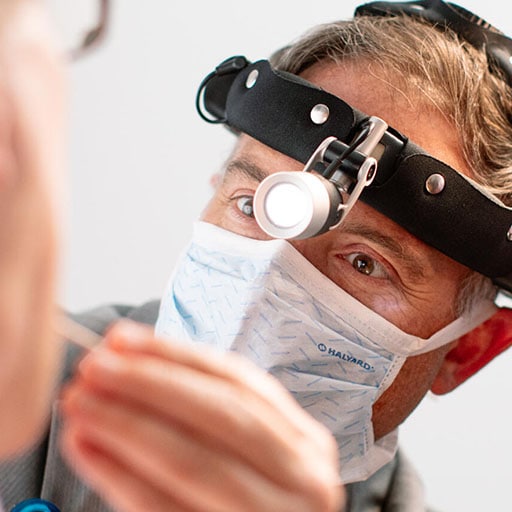Checking out the Field of Otolaryngology: What to Expect When You Seek Advice From an ENT
Otolaryngology, typically referred to as ENT, incorporates the medical diagnosis and therapy of throat, nose, and ear problems. For those experiencing associated concerns, consulting an ENT professional can offer clearness and relief. Recognizing what to anticipate during such appointments is essential for reliable interaction and care. This introduction will outline vital elements of the ENT experience, consisting of typical reasons for visits and the procedures included in diagnosis and therapy.

Comprehending Otolaryngology: An Overview
Otolaryngology, frequently referred to as ENT (Throat, nose, and ear) medicine, is a specialized branch of medication that concentrates on the diagnosis and therapy of problems influencing these crucial areas of the body. This area incorporates a vast array of disorders, including those pertaining to hearing, balance, respiratory feature, and speech. Otolaryngologists are educated to take care of both surgical and clinical therapies, utilizing advanced techniques and technologies. Their competence prolongs past conventional ailments, addressing issues such as allergic reactions, sinus infections, and hearing loss. Furthermore, they play an important function in the management of head and neck cancers cells, offering complete care tailored to individual patient demands. In general, otolaryngology continues to be important for maintaining health and wellness and high quality of life in affected people.
Typical Factors to See an ENT Expert
Numerous people look for the knowledge of an ENT expert for a range of factors, mirroring the diverse nature of problems that influence the ear, throat, and nose. Usual concerns consist of persistent sinusitis, which frequently causes relentless nasal blockage and face discomfort. Allergic reactions and their linked signs and symptoms, such as itching and sneezing, also prompt sees to these experts (Sinus). Hearing loss, whether gradual or unexpected, is another significant reason for assessment. In addition, individuals may seek examination for throat conditions, consisting of persistent hoarseness or ingesting troubles. Rest apnea, defined by disrupted breathing during rest, is regularly attended to by ENT experts. Each of these conditions highlights the importance of specialized treatment in handling complicated ENT-related health concerns
Planning for Your ENT Visit
When preparing for an ENT consultation, it is important to gather pertinent info and consider any type of details worries. Clients should assemble a comprehensive medical background, including previous ear, nose, or throat concerns, surgical treatments, and current drugs. Recording signs-- such as duration, intensity, and frequency-- can supply important insights for the ENT professional. Furthermore, people must prepare a checklist of concerns they want to ask, guaranteeing that all worries are dealt with throughout the visit. Bringing along any type of pertinent clinical records or test results can additionally assist the ENT in comprehending the person's condition. Lastly, people ought to verify their appointment information, consisting of day, area, and time, to decrease any kind of last-minute confusion. Proper prep work can enhance the performance of the appointment and bring about much better outcomes.
What to Anticipate Throughout the Examination
As the assessment begins, the person can expect to take part in an extensive conversation with the ENT expert concerning their signs and symptoms and clinical history. The professional will certainly ask about the period, frequency, and intensity of signs such as hearing loss, nasal blockage, or aching throat. Furthermore, the individual's previous medical problems, drugs, and any kind of appropriate family history will certainly be reviewed, aiding the expert in forming a full understanding of the client's wellness. The ENT may likewise ask regarding lifestyle variables, such as direct exposure to toxic irritants or allergens. This open dialogue establishes a structure for the appointment, making sure that the patient's concerns are resolved and establishing the phase for any needed evaluations or recommendations for therapy.
Diagnostic Tests and Procedures in Otolaryngology
A variety of analysis tests and procedures are crucial in otolaryngology to properly assess and detect conditions affecting the throat, nose, and ear. Typical examinations include audiometry, which determines hearing function, and tympanometry, assessing middle ear stress. Nasal endoscopy permits visualization of the nasal passages and sinuses, while laryngoscopy checks out the throat and vocal cables. Imaging techniques, such as CT scans and MRIs, provide thorough sights of head and neck frameworks. Allergy testing might likewise be performed to identify triggers for sinus or respiratory system problems. These diagnostic devices allow ENT professionals to develop a complete understanding of individuals' problems, making sure tailored and efficient monitoring strategies. Correct diagnosis is important for effective treatment results in otolaryngology.
Therapy Options Supplied by ENT Specialists
ENT experts use a range of therapy options customized to address certain conditions influencing the nose, ear, and throat. These treatments range from conventional strategies, such as medicine and way of life adjustments, to more invasive procedures. Allergies might be taken care of with antihistamines or immunotherapy, while chronic sinusitis may call for nasal corticosteroids or sinus surgical treatment. For hearing loss, ENT experts usually recommend listening devices or medical treatments like cochlear implants. In cases of throat problems, choices can include speech treatment or procedures to get rid of obstructions. In addition, they might supply guidance for taking care of sleep apnea, consisting of the use of CPAP gadgets or surgical interventions. Generally, the objective is to boost people' top quality of life via customized treatment and effective therapy methods.
When to Seek Follow-Up Treatment With an ENT
Identifying when to look for follow-up care with an why not try these out ENT expert is important for handling recurring signs or difficulties associated to throat, nose, and ear conditions. People need to take into consideration scheduling a follow-up consultation if signs persist regardless of preliminary treatment, such as chronic ear discomfort, nasal congestion, or throat discomfort. Adjustments in hearing, balance concerns, or unusual nasal discharge might also require additional analysis. Furthermore, if a patient experiences adverse effects from recommended medicines or has undertaken an operation, follow-up treatment is vital to monitor recuperation and address any worries. Prompt appointments can ensure effective monitoring of conditions, protect against potential find more info complications, and provide peace of mind concerning one's health. Seeking follow-up treatment advertises proactive health management in otolaryngology.
Regularly Asked Questions

What Qualifications Should I Search for in an ENT Expert?
When looking for an ENT specialist, one ought to seek board certification, relevant experience, and strong individual reviews. Additionally, efficient interaction abilities and a thoughtful strategy can considerably enhance the general treatment experience.
Exactly how Do I Choose the Right ENT for My Requirements?
Selecting the ideal ENT specialist includes evaluating their credentials, experience, and individual testimonials (Otorrinolaringologia). It is important to ponder their interaction style and approach to treatment, guaranteeing they straighten with the individual's certain health demands and preferences
Are There Any Kind Of Threats Associated With ENT Procedures?
The dangers connected with ENT treatments may consist of infection, blood loss, anesthetic problems, and potential damage to bordering frameworks. Individuals should talk about these dangers with their doctor to recognize specific worries and warranty notified choices.
Just How Can I Manage Anxiety Prior To My ENT Appointment?
To manage anxiousness before a visit, individuals can exercise deep breathing workouts, imagine favorable end results, prepare inquiries ahead of time, and seek support from buddies or family, fostering a feeling of peace of mind and peace.
What Should I Do if I Experience Adverse Effects From Treatment?
If adverse effects from treatment occur, the individual should quickly report them to their doctor. Adjustments to therapy or extra treatments may be needed to assure security and effectiveness in handling their problem - ENT Clinic. As the consultation starts, the person can anticipate to involve in a complete discussion with the ENT specialist concerning their signs and medical background. These diagnostic devices make it possible for ENT professionals to develop a thorough understanding of clients' conditions, making sure customized and effective management strategies. ENT specialists use a range of therapy choices customized to attend to certain problems affecting the nose, throat, and ear. When seeking an ENT expert, one need to look for board certification, pertinent experience, msa pro sound amplifier and solid client evaluations. Choosing the right ENT expert includes assessing their credentials, experience, and client reviews